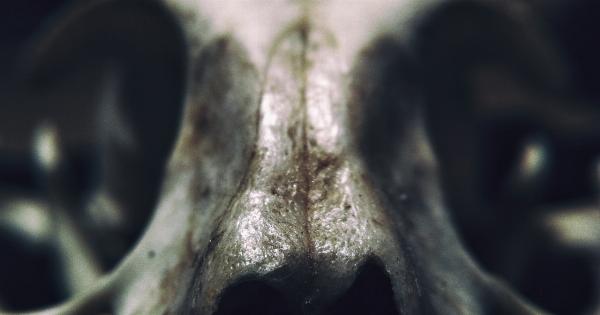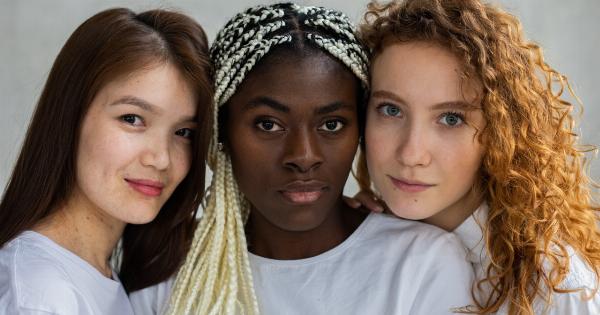In the realm of mate selection, humans have evolved various preferences and criteria to choose their partners. While there are several factors that come into play, a growing body of research suggests that men prioritize fertility when selecting a mate.
This article explores the findings that support this hypothesis and delves into the underlying biological, evolutionary, and cultural reasons behind it.
Evidence of Men Prioritizing Fertility
Multiple studies have provided evidence indicating that men subconsciously prioritize fertility in mate selection.
Research conducted by Buss and Schmitt (1993) found that men consistently rated physical attractiveness, which is often associated with fertility cues such as youthfulness and health, as one of the highest priorities in potential partners.
Furthermore, a study by Apostolou (2008) revealed that men place significant importance on a woman’s reproductive potential, including factors such as her ability and willingness to bear and raise children.
The study also showed that men consider physical attractiveness as an indicator of fertility, as attractive women are assumed to possess higher reproductive abilities.
Harris et al. (2016), in their research on mate preferences, found that men focus on cues of fertility in potential partners, including physical attributes like a lower waist-to-hip ratio, clear skin, and symmetrical facial features.
These features are believed to be tied to a woman’s fertility and her ability to produce offspring.
Biological Factors
The biological factors behind men prioritizing fertility in mate selection can be traced back to the fundamental instincts driven by evolution.
From an evolutionary standpoint, men are wired to seek partners who display cues of high fertility to maximize their reproductive success.
One of the primary reasons for this preference is the desire to pass on their genes.
Men unconsciously seek partners who possess the physical traits associated with fertility, as these traits are more likely to produce offspring with a higher chance of survival and reproductive success. This instinct has been ingrained in human biology over thousands of generations of natural selection.
Additionally, men have a higher reproductive lifespan compared to women, allowing them to seek out and reproduce with fertile partners across a more extended period.
This further reinforces the natural inclination of men to prioritize fertility during mate selection.
Evolutionary Significance
Men’s prioritization of fertility in mate selection can be seen as an evolutionarily advantageous strategy. By selecting partners who exhibit fertility cues, men increase the likelihood of their reproductive success.
From an evolutionary perspective, a man’s desire for fertile mates allows for the potential transmission of his genetic material to future generations.
This preference enhances the chances of having offspring who are themselves more likely to possess adaptive genetic traits and survive long enough to reproduce, thus ensuring the continuity of the man’s genes and lineage.
In addition, selecting mates based on fertility cues can also serve as an assurance of genetic compatibility.
Men innately seek partners who are better equipped to produce healthy offspring, reducing the risk of genetic disorders or other reproductive complications.
Cultural Influences
While biological factors play a significant role, cultural influences also shape mate preferences and influence men’s prioritization of fertility.
Societal norms, media portrayals, and cultural expectations can heavily influence what men find attractive and consider as indications of fertility.
Historically, cultural practices and societal traditions have placed high value on women’s reproductive abilities and their roles as mothers.
This emphasis on fertility has been passed down through generations and can influence men’s mate preferences based on societal expectations.
Additionally, media representations of beauty often idealize youthful looks and certain physical characteristics associated with fertility, reinforcing men’s preferences for women who possess these attributes.
Social Desirability Bias
It is important to acknowledge the potential influence of social desirability bias when examining preferences in mate selection.
Social desirability bias refers to the tendency of individuals to provide responses that they perceive as more socially acceptable or desirable.
In the context of mate selection, respondents may feel inclined to prioritize fertility when asked about their preferences, as it aligns with societal expectations and norms.
Therefore, while studies provide evidence supporting men’s prioritization of fertility, the extent to which it solely drives mate selection preferences may be influenced by social desirability bias.
The Role of Personal Factors
Although research indicates that men generally prioritize fertility in mate selection, personal factors such as individual values, long-term goals, and relationship preferences can also influence mate preferences.
Not all men prioritize fertility to the same extent, as personal circumstances and priorities vary.
Some men may place more emphasis on emotional compatibility, shared interests, or personality traits, viewing these factors as equally important or even more crucial in choosing a partner.
Furthermore, as societal values and gender roles continue to evolve, the influence of fertility as a primary factor in mate selection may diminish or be reshaped by other considerations.
Conclusion
The evidence suggests that men prioritize fertility in mate selection, influenced by both biological and cultural factors.
Evolutionary instincts drive men to seek partners who exhibit physical cues associated with fertility, as it enhances their reproductive success and the transmission of their genes. Additionally, societal norms and cultural influences contribute to men’s perception of fertility as an essential trait in potential partners.
However, it is important to recognize that individual preferences and personal factors also play a role in mate selection. While fertility may be a significant consideration for many men, it is not the sole determinant of their choices.
Factors such as emotional compatibility, shared values, and long-term goals also shape men’s preferences and considerations in selecting a mate.






























